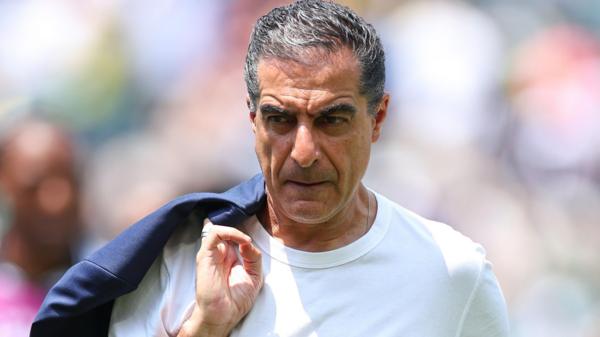Stunning Botafogo Firing Leaves Players Speechless - Details Here!




In an unexpected twist that has rocked Brazilian football, Botafogo has parted ways with their coach Renato Paiva. The decision comes amid reports suggesting Paiva's refusal to allow the club’s owner, John Textor, to have a say in team selections was the key factor behind his departure. This incident highlights a significant clash of philosophies at Botafogo and sparks a broader conversation about the dynamics between club owners and team management.
Renato Paiva, who took over the managerial reins at Botafogo, was viewed by many as a beacon of hope for the team. Known for his meticulous approach to coaching and development-focused style, Paiva was expected to be the architect of Botafogo’s resurgence. Under his guidance, the team showed signs of cohesive play and tactical discipline, elements that were often missing in previous setups.
John Textor, an American entrepreneur with an expanding portfolio in sports team ownership, including significant stakes in clubs across different continents, acquired control of Botafogo with visions of transforming the historic club into a global football powerhouse. Part of his strategy has been active involvement in various aspects of the club's operations, which is not uncommon in his role. However, his apparent wish to influence team selection crossed a traditional boundary that typically reserves such decisions for the managerial staff.
The clash over team selection is a telling sign of the pressures and challenges faced by coaches in the modern football world, where business and sport collide. While the involvement of club owners in team affairs varies across leagues and cultures, the consensus remains that such interference can undermine the authority of the coach and potentially disrupt team harmony.
This incident at Botafogo could serve as a critical reflection point for clubs globally. It underscores the need for a clear definition of roles within football clubs, ensuring that all parties—from the owners to the coaches—understand and respect their boundaries. For a coach, autonomy in team selection is crucial. It allows them to execute their vision and strategies effectively, confident in the knowledge that they retain the authority to make tactical decisions.
For Botafogo, this upheaval comes at a time when stability is desperately needed. The club has had its share of turbulence in recent years with relegations and financial struggles. The hope with Textor's takeover was to usher in a period of stability and growth. The recent events, however, may pose new challenges to this vision, raising questions about the club's direction and leadership style.
Looking ahead, Botafogo's priority will be to find a new coach who aligns with both the club's footballing philosophy and the operational ideologies of its owner. This task, while daunting, is crucial to ensure the team remains competitive and focused amidst off-the-field distractions. Moreover, lessons learnt from Paiva’s tenure about the delicate balance of power within football clubs will undoubtedly influence how Botafogo and other clubs manage relationships between coaches and owners moving forward.
As the football community watches closely, the Botafogo saga offers a compelling narrative on the complexities of sports management. It serves as a reminder that in football, success is often dictated not just by what happens on the pitch, but also by how well a team navigates the intricate dance of interests, personalities, and expectations off it.
Only time will tell how Botafogo rebounds from this episode. But one thing remains clear: in football, as in any team endeavor, harmony between all parties involved is essential for achieving lasting success and fulfilling the dreams of fans who stand by their beloved club through thick and thin.